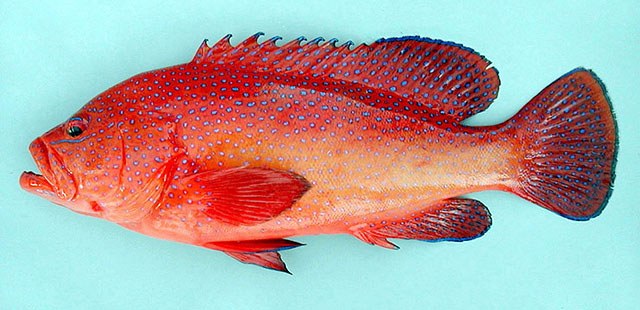| Epinephelidae (Groupers) |
| 70 cm TL (male/unsexed) |
|
demersal; marine; depth range 20 - 300 m |
| Eastern Atlantic: Western Sahara to Angola, including Cape Verde and the Sao Tome and Principe islands. Also recorded from the Mediterranean. |
|
Dorsal spines (total): 9-9; Dorsal soft rays (total): 15-16; Anal spines: 3-3; Anal soft rays: 9-10. Distinguished by the following characteristics: body depth less than head length, 2.8-3.2 in SL; head length 2.7-3.0 in SL; interorbital area convex; rounded preopercle, finely serrate, with shallow notch, fleshy lower edge; subopercle and interopercle with few small serrae covered by skin; maxilla reaching vertical at rear edge of eye or beyond; pectoral fins longer than pelvic fins, pectoral fin length contained 1.5-1.7 in HL; pelvic fins reaching or nearly reaching anus; caudal fin rounded; lateral-body scales ctenoid, without auxiliary scales (Ref. 089707). |
| Found on sandy and rocky bottoms (Refs. 32181, 127989). Diandric protogynous hermaphrodite (Ref. 089707). |
|
Least Concern (LC); Date assessed: 17 November 2016 Ref. (130435)
|
| harmless |
Source and more info: www.fishbase.org. For personal, classroom, and other internal use only. Not for publication.
